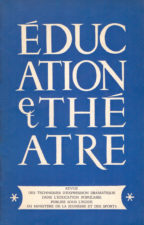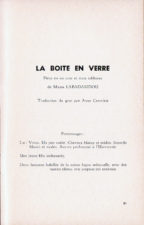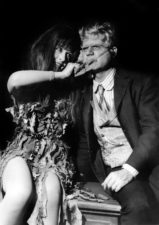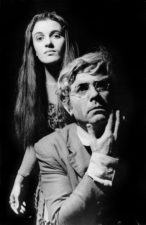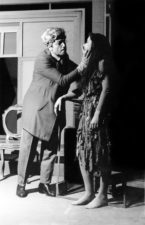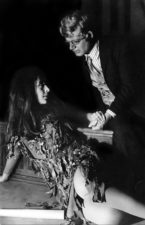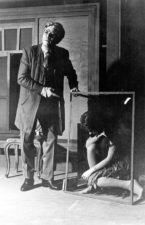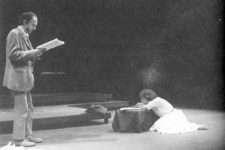The glass box was written in Paris in March 1967, while M.L.P. was studying Theatre in Sorbonne with a scholarship by the French government.
The play translated by Anne Creuchet was taught at the Theatrical Department of Sorbonne by professor Charles Antonetti.
It had been approved by Petit Odeon Theatre, but it wasn't staged due to the events of May '68. It was published in the Parisian magazine Education et Théâtre, March 1967.
Translated in English by Thanasis Anagnostopoulos, it was staged in Buffalo U.S. during the 1st International Women Playwrights Conference (1988).
It was staged in the New Stage of the National Theatre (1971) and was produced for television by the Theatre of Monday show NRT, 1991). It was also published as the seventh volume of GREEK LETTERS, 1992-1993.
Plot
The glass box is a symbolic work concerning human fate. I believe that memory makes sense as a profound dimension in our lives. There we experience our most intimate solitude. The play lies, in my opinion, within this fragile, inner region. The human creature exists faceless and naked, cut off from its history and myth. A man (the basic character) who reaches the end of his life thirsts for a drop of what used to be his own. As a professor absorbed in scientific research, he suddenly realizes that he did not live. And he exists between the charm of delusion and on the edge of logic. The young girl who is inside the glass box, which is the aesthetic essence of his life, will be his inner dialogue between dream, memory, death. That's where the absurdity begins. The need to believe in or create an illusion of life. Because I believe that the absurd is precisely our inner need to believe in or create an illusion of life when with no interpretation or logic can we perceive our own existence in the world.
Reviews
In 1979 M.L.P. sent the play to Samuel Beckett and he responded:
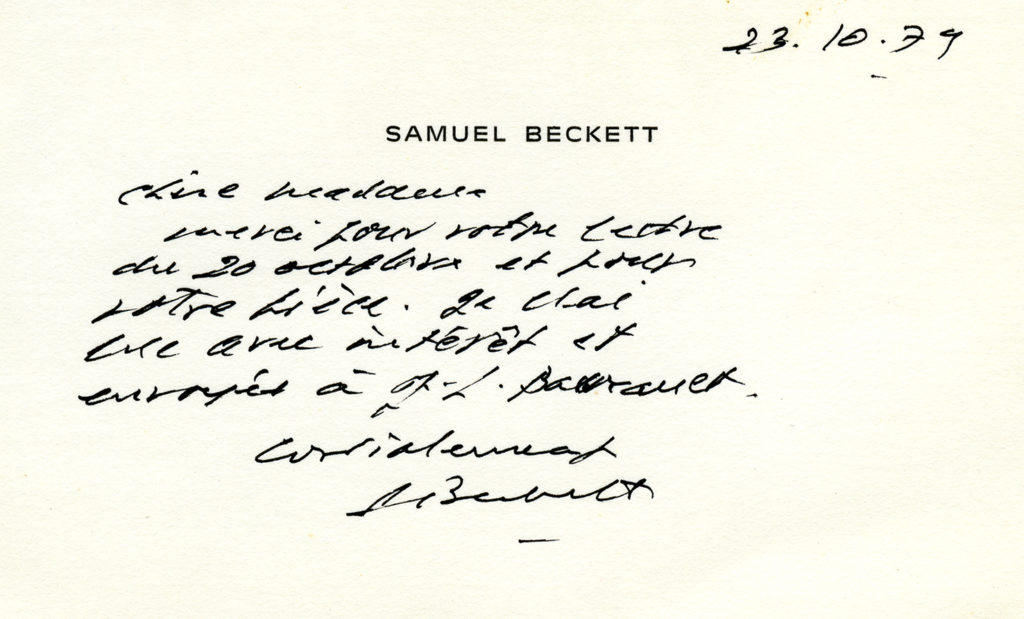
(...) I read your play The glass box with great interest and sent it to J. L. Barauld.
Below is the letter sent to M.L.P. by the president of PEN International Ronald Harwood about the Glass Box.
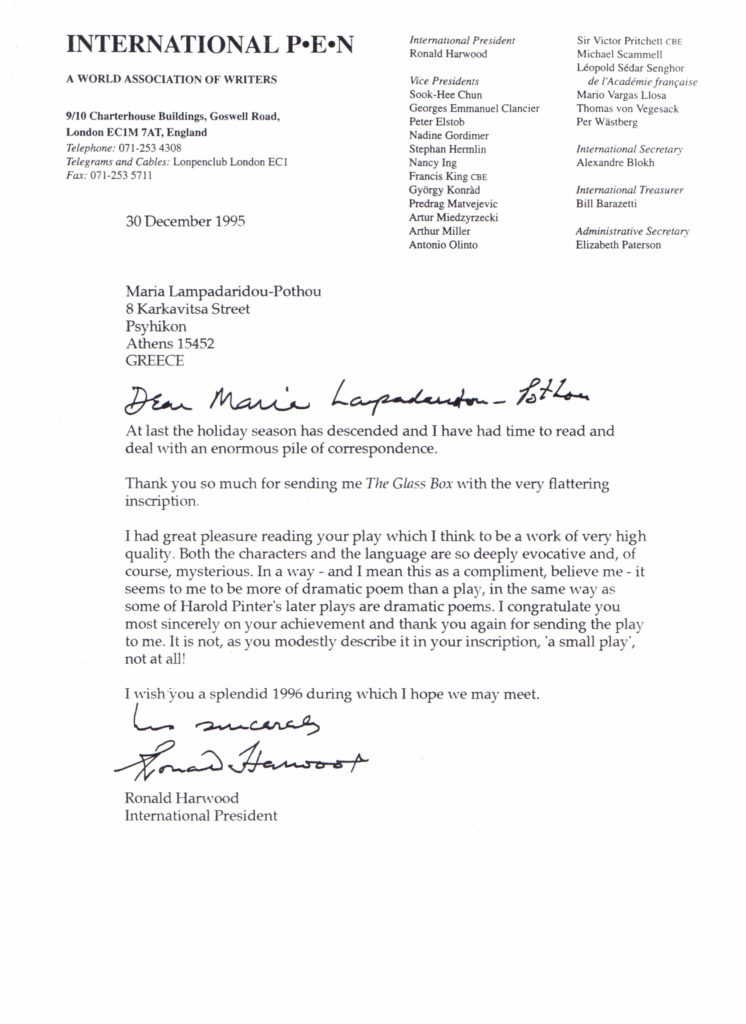
(...) I had great pleasure reading your play which I think to be a work of very high quality. Both the characters and the language are so deeply evocative and, of course, mysterious. In a way - and I mean this as a compliment, believe me - it seems to me to be more of dramatic poem than a play, in the same way as some of Harold Pinter's later plays are dramatic poems. I congratulate you most sincerely on your achievement and thank you again for sending the play to me. It is not, as you modestly describe it in your inscription, 'a small play', not at all!
Charles Antonetti was a professor of Stage Direction at the Sorbonne. In his letter he mentions among other things:
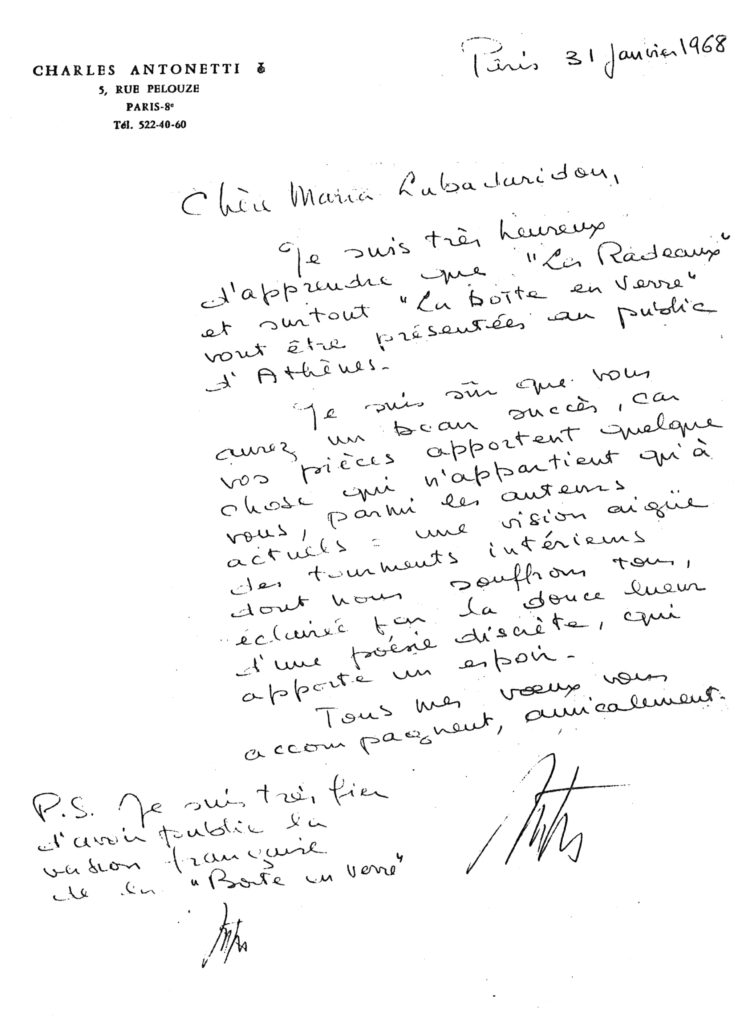
(..) Your plays offer something that is exclusively yours among the playwrights of our times. A penetrating look into the inner torments, from which we all suffer, illuminated by the sweet light of a discreet poetry that ends up hopeful. I am very proud to have published the French translation of "The Glass Box".
Archives
Photos from the play at the New Stage of the National Theatre in 1971. (Link to the N.T. archive)
From the presentation of the play during the First International Women Playwrights Conference in Buffalo, New York, 1988.
